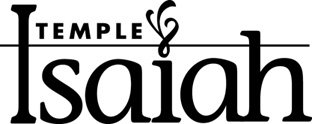September 2021
High Holy Days Lead to Reflections on Alcohol Use
The High Holy Days have been a time of reflection, assessment, and making plans to become a better person; to change the behaviors that are getting in the way of becoming the person we want to be. Alcohol use may be one of those behaviors .
We are socially acceptable drinkers until we aren’t. These past eighteen months of living in our Covid impacted world have added many layers of stress to our already stressful lives. Some of us may have found alcohol use to have slipped into an acceptable daily routine. Yes, our drinking is more frequent and second and third glasses of wine seem okay because we are all so stressed and we believe it helps us relax and sleep. At what point do we acknowledge that we have slipped into the cycle of addition - from regular use becoming problematic and risky?
The Rand Corporation Study found “ Women had higher rates of pandemic-related changes and have twice the risk for depression and anxiety, and heavy alcohol use exacerbates depression, anxiety, and insomnia- symptoms experienced by many during this pandemic.” “ Additional research has shown that psychological stress related to COVID-19 was associated with greater drinking for women, but not men.” It’s pretty obvious that we are living in some very stressful times, and everyone is struggling in their own way, but how do we know if our alcohol use is becoming a problem?
The answer is somewhat individual. Start by taking a look at the past thirty days and identify the days you drank and the number of drinks each time you drank. Count up the total drinks estimated and also identify days where more than 3 drinks were consumed. Then examine your drinking behavior in light of your mental and physical health risks, including a personal or family history of alcohol problems, and use of any medication that are contraindicated with alcohol.
The next step depends on you. Will cutting back on alcohol use help meet your goal to become a better person?
How to approach change:
-Stay within the National Institute of Alcohol Abuse and Alcoholism (NIAAA) current guidelines for alcohol consumption: no more than one standard drink per day (women) and two standard drinks per day (men). There is no safe limit of alcohol use while pregnant.
-Find other ways to help reduce the stress in our lives. Join our Neshamah Yoga classes, or the Mind Body stress reduction or depression yoga (https://temple-isaiah.org/community/mental-health-and-wellness/), join Shabbat drop in Chanting with Jeanette, or sign up for a Circle group this fall that offers mindfulness and meditation. Participating in regular exercises, such as walking, running, or lifting weights, is a great stress reducer too. Many exercise classes can also be found online through community and adult schools that teach aerobics or zumba, as well as other exercise options.
When alcohol use has devolved into something self destructive and pathological and not “in control” there are two potential paths to consider for getting help: 1) seek out a professional who has training in “addictionology” as part of their professional credentials. That subspecialty area is more likely to lead to someone with the specialized training that is helpful as opposed to just seeing a general family practitioner of psychiatrist; or 2) consider Alcoholics Anonymous (AA), a non-professional group therapy that has been extremely helpful over the past 85 years. They have been the most successful yet non-professional source of help and is based on “fellowship” and support. https://www.aa.org
Find treatment https://findtreatment.samhsa.gov Or https://alcoholtreatment.niaaa.nih.gov
Find a recovery program https://www.samhsa.gov/sites/default/files/virtual-recovery-resources.pdf
Medication-assisted treatment https://www.samhsa.gov/medication-assisted-treatment
The clergy are also always available. We also invite you to reach out to them at (925) 283-8575 or .(JavaScript must be enabled to view this email address)

